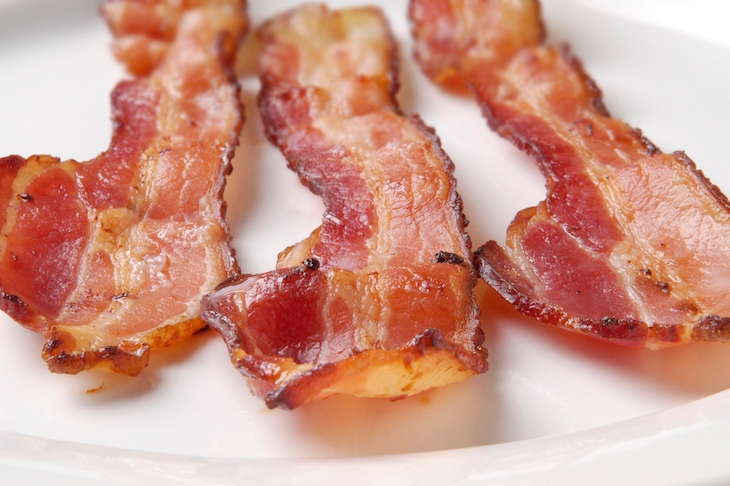Interested in a case study of all rational and proportional thought going out the window? No, I’m not talking about Brexit – I’m talking about the ‘EAT-Lancet Commission on Food, Planet, Health’ which – in an ironic attempt to lay out prescriptions for a better world – published a report yesterday calling for intervention, force, rationing, and the abolition of consumer choice to achieve its ends.
This latest dietary decree only allows seven grams of pork per day (equivalent to a half-rasher of bacon, or one-tenth of a sausage), twenty-nine grams of chicken each day (roughly one and a half nuggets), one quarter of a baked potato, and only one and half eggs – not per day, but per week.
In total, Brits would have to cut their meat consumption by roughly 80 per cent to comply with the ‘planetary health diet’. The report refers to its recommendations as ‘targets’, but those who might choose to opt out of plates full of bean sprouts and the occasional poached egg could be in for a rude awakening.
The application chart – designed to guide governments as they usher in an era of veganism – ranges from ‘do nothing’ and ‘inform or educate’, to ‘ration’, ‘eliminate choice’ and ban products from the market completely. But the Lancet report shows its preference for the extreme side of that spectrum, arguing that ‘countries and authorities should not restrict themselves to narrow measures or soft interventions.’ Instead, especially in high income countries, the ‘priority is to offer less than what is currently offered by reducing portions, choice, and packaging.’
The report’s authors seem aware that the majority of people would not want to subscribe to these guidelines. The only way to achieve their radical worldview is through forceful, authoritarian measures, which make the sugar tax look like the stuff of liberal dreams.
It is a desensitised and dehumanising document, which forgets that real people would be subject to the consequences of its policies. From restricting and banning the consumption of vital food groups, to describing ‘wars and natural disasters’ as ‘opportunities from which the food system can be transformed,’ fanatic academics have seemingly lost the plot – not to mention any connection or understanding of their audiences.
It’s a genuine shame that any decent point to be made about the environment or intensive farming will go completely overlooked due to the surreal and fanciful nature of this report.
Imagine if this Lancet team had come up with a half-moderate proposal for dietary reform? There’s good reason to think it could have received a warmer reception.
A record number of people signed up to Veganuary this year – that’s a reported quarter of a million people who made the conscious effort to cut meat and dairy out of their lives for the first month of 2019.
And those are just the temporary converts. According to the Guardian, ‘one in eight Britons are now vegetarian or vegan’, while another 21 per cent claim they try to stick to a predominately plant-based diet, only consuming meat as a treat.
There has been a shift towards meat-free lifestyles in recent years, which can be explained in various ways. Many see it as a way to live a healthier life; for some, it’s for the environment. And for all taking part, it’s never been easier or a more delicious experience to be a vegetarian or vegan (even Greggs is catering to these customers with its vegan sausage roll).
From better veggie options, to the rise of lab-grown meat, even meat-eaters recognise that the future of consumption is likely to look different in the not-so-distant future. But these are reasons to embrace consumer choice, technology, and the wide variety of options available to us – not to hand our diets over to the state, to have our meals hand-selected and portioned by bureaucrats and radicalised academics (who don’t practice what they preach).
Lancet’s findings aren’t just berserk – they’re backwards. Next time they undertake a three-year study, they should consider how they might come to conclusions that overlap in some way with reality.
Kate Andrews is associate director at the Institute of Economic Affairs.







Comments